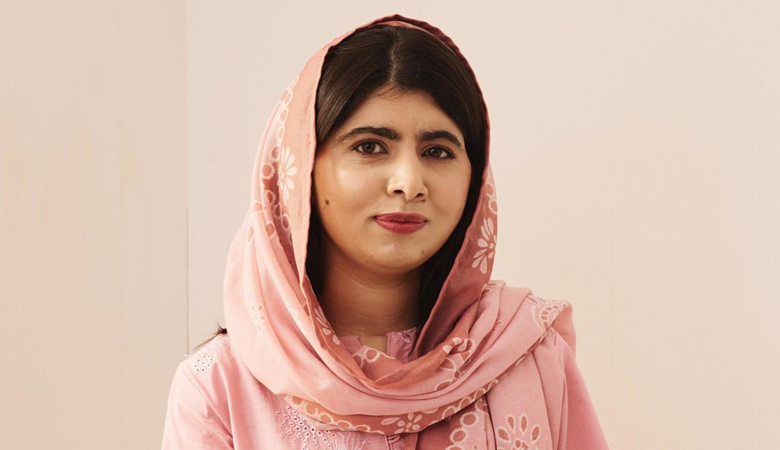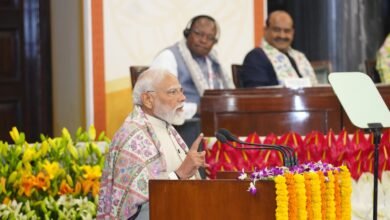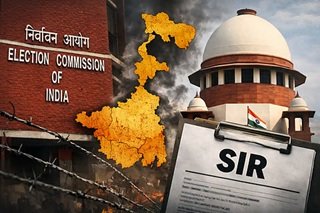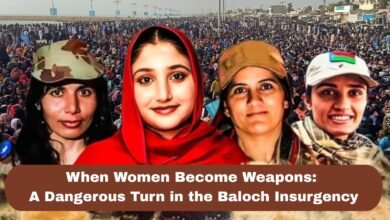“It was for them, for their own life, for their own freedom.”- Malala Yousafzai speaks up for Afghan women

News Mania Desk / Piyal Chatterjee / 19th November 2024
Malala Yousafzai is speaking up for Afghan women after a bullet failed to silence her. Since the Taliban seized back power a few years ago, women’s rights have been so severely undermined that singing is now prohibited. Malala has a personal history with the Taliban in Pakistan, where she was shot by a member of the radical Islamist organization when she was sitting on a school bus. Malala, who has fought for equality since her near-fatal shooting in 2012, has been shocked by the cruelty and the rapidity of change in Afghanistan.
“I never imagined that the rights of women would be compromised so easily,” Malala tells BBC Asian Network. “A lot of girls are finding themselves in a very hopeless, depressing situation where they do not see any way out,” the 27-year-old Nobel Prize Winner says.”The future looks very dark to them.”
Twenty years after their regime was overthrown by a US-led invasion in the wake of the 9/11 attacks in New York, the Taliban retook control of Afghanistan in 2021. Women in Afghanistan have lost numerous privileges due to “morality laws” in the three and a half years since Western forces departed the country. Strict regulations have prohibited them from traveling without a male chaperone or making eye contact with men unless they are related by blood or marriage, and women must adhere to a clothing code that requires them to be completely covered.
“The restrictions are just so extreme that it does not even make sense to anybody,” Malala asserts. The laws, according to the United Nations (UN), amount to “gender apartheid”—a system in which individuals experience social and economic discrimination because of their sex—something that human rights organization Amnesty International wants to be recognized as illegal under international law. However, the Taliban have defended the regulations, arguing that the international community should respect “Islamic laws, traditions, and the values of Muslim societies” and that they are accepted in Afghan society.
“Women lost everything,” says Malala.”They [the Taliban] know that to take away women’s rights you have to start with the foundation, and that is education.”
According to the UN, around 80% of Afghan girls do not attend school, and in 2022, roughly 100,000 female students were prohibited from enrolling in university courses. Lack of access to education has also been linked to an increase in child marriage and prenatal and postpartum fatalities.
’’Afghan women live in very dark times now,” Malala says.”But they show resistance.”
The activist, who was born in Pakistan and became the youngest recipient of the Nobel Peace Prize, is executive producing Bread & Roses, a movie that follows the lives of three Afghan women during the Taliban. The documentary follows government employee Sharifa, who loses her job and her independence, activist Taranom, who flees to the border, and Zahra, a dentist who is forced to close her clinic. But according to Malala, the movie is about more than just the experiences of three women.
“It’s about the 20 million Afghan girls and women whose stories may not make it to our screens.” Bread & Roses was directed by Afghan filmmaker Sahra Mani and US actress Jennifer Lawrence was also brought on board as a producer.
Sahra tells Asian Network her mission was “to tell the story of a nation under the Taliban dictatorship”. “How slowly, all the rights have been taken away.” Sahra managed to flee Afghanistan after the US-backed government collapsed following the withdrawal of troops in August 2021. But she kept in touch with women back home, who would share videos which she then collected and archived.
“It was very important to find young, modern, educated women that have talent they were ready to dedicate to society,” says Sahra. “They were ready to build the country but now they have to sit at home and almost do nothing.” “At that time, women could still go out and demonstrate,” she says.
“Nowadays, women are not even allowed to sing… the situation is getting more difficult.” The women are seen in the first-person video at demonstrations; they continued to record until the Taliban arrested them. Furthermore, Sahra claims that when more of their rights were taken away, the endeavor just became more difficult.
“We were really honoured that these women trusted us to share their stories,” she says. “And it was really important for us to put their security in our priorities. “But when they were out in the street asking for their rights, it was not for the documentary. “It was for them, for their own life, for their own freedom.”
“They are doing all that they can to fight for their rights, to raise their voices,” Malala says. “They’re putting so much at risk. It’s our time to be their sisters and be their supporters.”
Malala also hopes the documentary prompts more international pressure on the Taliban to restore women’s rights. “I was completely shocked when I saw the reality of the Taliban take over,” she says. “We really have to question what sort of systems we have put in place to guarantee protection to women in Afghanistan, but also elsewhere.”
“There’s so much for us to learn from the bravery and courage of these Afghan women,” says Malala. “If they are not scared, if they are not losing that courage to stand up to the Taliban, we should learn from them and we should stand in solidarity with them.”
The title itself was inspired by an Afghan saying.”Bread is a symbol of freedom, earning a salary and supporting the family,” Sahra says. “We have a saying in my language that the one who gave you bread is the one who orders you.”So if you find your bread, that means you are the boss of you.”That’s exactly the future she hopes to see for the women of Afghanistan and, based on what she’s seen, one she believes they will achieve in the end.
“Women in Afghanistan, they keep changing the tactic,” she says. “They keep searching for a new way to keep fighting back.”






